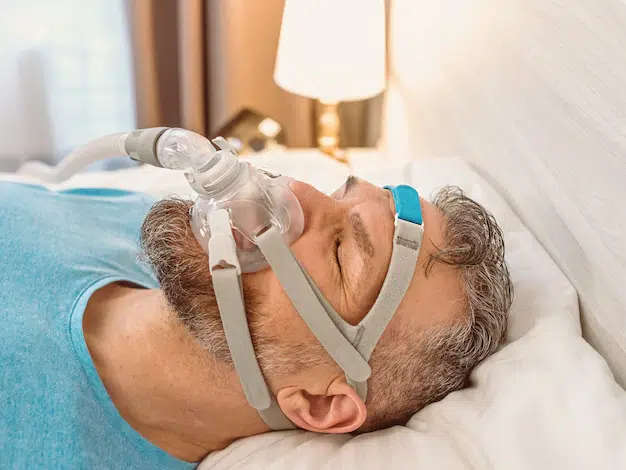Are you one of those people who snores loudly while sleeping? Or do you frequently wake up gasping for air in the middle of the night? Then it’s time to pay attention as these could be early signs of sleep apnea- a condition where your breathing is repeatedly interrupted during sleep. But did you know that if left untreated, sleep apnea can lead to serious health issues such as heart attacks? Yes, you heard it right! In this blog post, we’ll discuss why early detection of sleep apnea is crucial in preventing heart attacks and how taking timely action can save your life. So let’s get started!
What Is Sleep Apnea?
Sleep apnea is a condition in which a person’s breathing is interrupted during sleep. There are three types of sleep apnea: obstructive, central, and mixed. Obstructive sleep apnea (OSA) is the most common type of sleep apnea and occurs when the muscles in the back of the throat relax and block the airway. Central sleep apnea (CSA) occurs when the brain fails to send signals to the muscles that control breathing. Mixed sleep apnea is a combination of both OSA and CSA.
Sleep apnea can occur in people of all ages, but it is more common in adults over 40 years old. People with certain medical conditions such as obesity, hypertension, heart disease, and diabetes are at increased risk for sleep apnea.
Symptoms of Sleep Apnea
Sleep apnea is a serious sleep disorder that occurs when a person’s breathing is interrupted during sleep. The most common symptoms of sleep apnea are:
- Loud snoring,
- Gasping for air during sleep,
- Waking up with a dry mouth or headache,
- Feeling tired during the day
Sleep apnea can lead to serious health problems, including high blood pressure, heart disease, and stroke. Early detection and treatment of sleep apnea can help prevent these complications.
Causes of Sleep Apneaghb
There are many possible causes of sleep apnea, but the most common cause is obesity. Other risk factors include smoking, alcohol use, and sleep position. People who have family members with sleep apnea are also at increased risk.
Sleep apnea occurs when the muscles in the throat relax and collapse during sleep. This blocks the airway and prevents air from reaching the lungs. The result is a person who snores loudly and often wakes up gasping for breath. Sleep apnea can lead to a number of serious health problems, including heart disease, stroke, high blood pressure, and diabetes. Early detection and treatment of sleep apnea is crucial in preventing these complications.
How Early Detection Can Help Prevent Heart Attacks
Early detection of sleep apnea is crucial in preventing heart attacks. When sleep apnea is left untreated, it can lead to an increased risk of heart attack. This is because sleep apnea decreases the amount of oxygen that reaches the blood and can cause an irregular heartbeat. If you suspect that you or someone you know has sleep apnea, it is important to see a doctor for a diagnosis. Early detection and treatment of sleep apnea can help prevent heart attacks and other serious health complications.
Early detection of sleep apnea is an important step in preventing heart attacks. With the right diagnosis and treatment plan, those with sleep apnea can reduce their risk of having a heart attack. By recognizing symptoms such as snoring, daytime fatigue, and difficulty sleeping through the night, you can be proactive in seeking out medical care and getting the help you need to reduce your risks. Don’t ignore these signs – early detection of sleep apnea is key to protecting yourself from serious health issues down the road.

